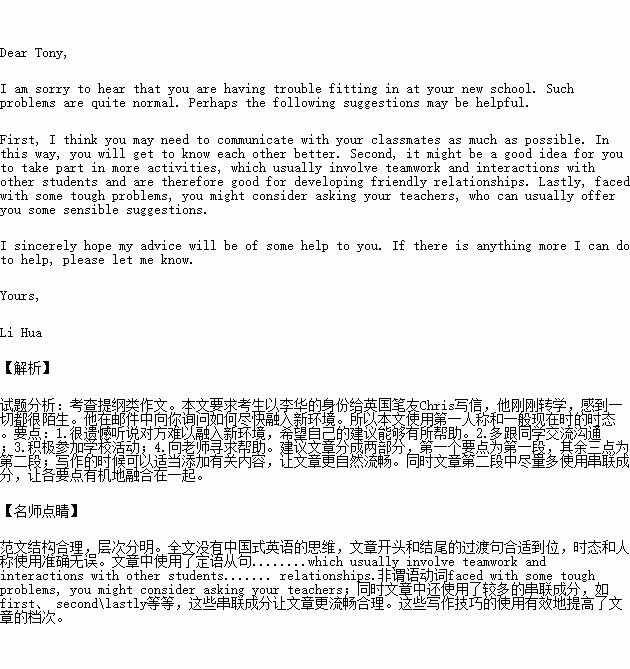题目内容
书面表达
假设你是红星中学高一(1)班的学生李华,你的英国笔友Chris刚刚转学,感到一切都很陌生。他在邮件中向你询问如何尽快融入新环境。请你根据以下信息回信。
1. 多跟同学交流沟通;
2. 积极参加学校活动;
3. 向老师寻求帮助。
注意:1.词数:100左右;
2. 可适当增加细节,以使行文连贯;
3. 开头和结尾已给出,不计人总词数。
Dear Chris,
---------------------------------------------------------------------------
---------------------------------------------------------------------------
---------------------------------------------------------------------------
---------------------------------------------------------------------------
---------------------------------------------------------------------------
---------------------------------------------------------------------------
---------------------------------------------------------------------------
Yours ,
Li Hua
练习册系列答案
相关题目

